The Second International Youth
Forum of Soil and Water Conservation Was Held Successfully in Moscow
The second
International Youth Forum of Soil and Water Conservation (2nd IYFSWC)
with the title of “Climate Change Impacts on Sediment Dynamics: Measurement,
Modelling and Management” was held in beautiful Moscow successfully during August
26-31, 2018.
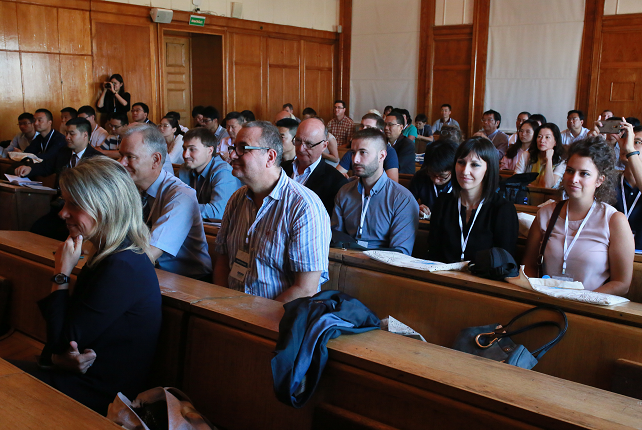
A
corner of conference
This
forum was sponsored by WASWAC, and organized by the Lomonosov Moscow State University
(MSU). It is the second session following the first session held in Nanchang in
October 2015. It is worldwide forum focuses on the youth who are contributed in
the soil and water conservation. Totally 137 participants from 14 countries including
China, Iran, Morocco, Russia, Austria, Egypt, Italy, Nigeria, Serbia, Belgium,
Germany, Japan, Poland and Ukraine have attended this forum.
Erosion,
sediment delivery and sediment transport are natural geological processes that
influence the form and function of terrestrial and aquatic systems. These
processes are central to landscape and soil development, geochemical cycling,
material fluxes and river channel morphology across the globe. In addition,
they strongly influence water quality and ecosystems of the world's rivers and
oceans. A wide range of natural (i.e. wildfire) and anthropogenic (harvesting,
agriculture, urbanization) disturbances alter the rates and magnitudes of
erosion and related sediment dynamics which can have significant economic and
social implications. While several important changes to the earth's surface
have resulted from socio-economic (i.e. population growth. Land change,
resource extraction) factors, there is increasing concern for the potential importance
of climate change as a driver of future changes in erosion and sediment dynamics
and the wide ranging impacts thereof. This forum specifically addresses the
issue of climate change and its impact on erosion and sediment dynamics with special
emphasis on its implications for measurement, modelling and management of
sediment in a changing world.
Dr
Sergey Chalov, the deputy dean for international affairs of Faculty of Geography
in MSU was hosted the opening ceremony and gave a warm welcome for all
participants.
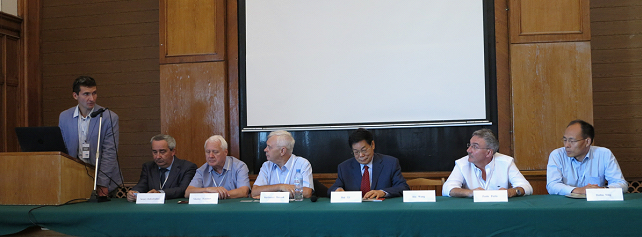
Addressing
on the Opening Ceremony
Prof.
Li Rui, the president of WASWAC, Prof. Ning Duihu, the Secretary-general of
WASWAC, Prof. Sergey Dobrolyubov, the dean of Faculty of Geography in MSU, and
the corresponding member of RAS, Prof. Nikolay Kasimov, the president of Faculty
of Geography in MSU, and the Academician of RAS, Prof. Kazimierz Banasik, the
vice-president of ICCE, and Prof. Paolo Porto, the ICCE Secretary, attended
this opening ceremony and gave speeches.
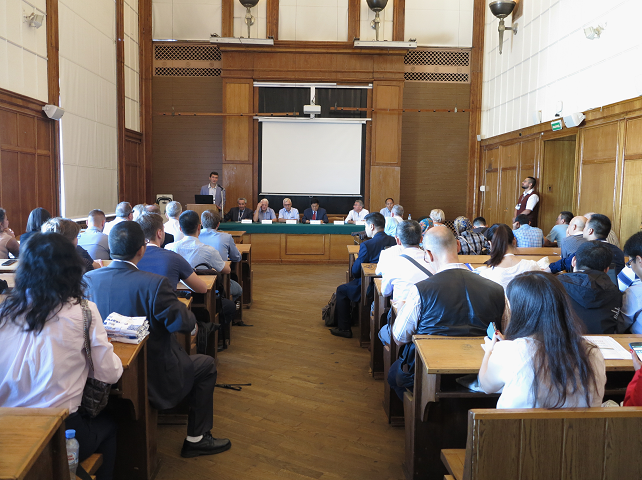
The
Opening Ceremony
In
President Li Rui’s speech, a brief introduction on the forum was provided, a
heartful welcome was delivered, an earnest expectation for the young generation was expressed, and
a good wish for the forum was given.
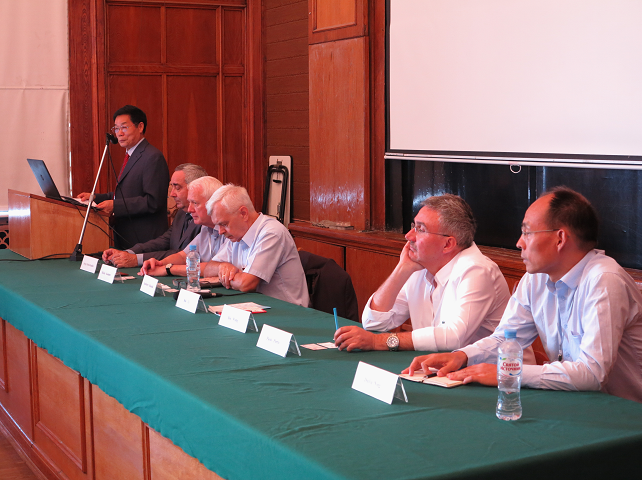
President
Li Rui is giving a speech in the Opening Ceremony
During
the forum, 6 outstanding scholars provided all participants a very high-level
academic keynote presentation. The 6 keynote speakers are:
1.
Prof. Jean Poesen, from the devision of Geography and
Toruism within the Department of Earth and Environmental Sciences, KU Leuven,
Belgium;
2. Dr Peter Strauss, the head of the institute for Land and Water Management
Research within the Federal Agency for Water Management.
3.
Prof. Helmut Habersack, the UNESCO Chair on Integrated
River Research and Management, from Hydraulic Engineering and Modelling at
the Department of Water, Atmosphere and Environment at the University of
Natural Resources and Life Science, Vienna, Austria.
4. Prof. Valentin Golosov, from Laboratory of Soil Erosion and Fluvial
Process, Faculty of Geography in MSU.
5.
Prof. Lei Tingwu, from the China Agricultural University,
one of the Editor-in-Chief for WASWAC official journal - International Soil
and Water Conservation Research.
6. Prof. Miodrag Zlatic, the former president of WASWAC, and a full
professor at Faculty of Forestry, Belgrade University, Serbia.
Detailed
information please see the following introduction.
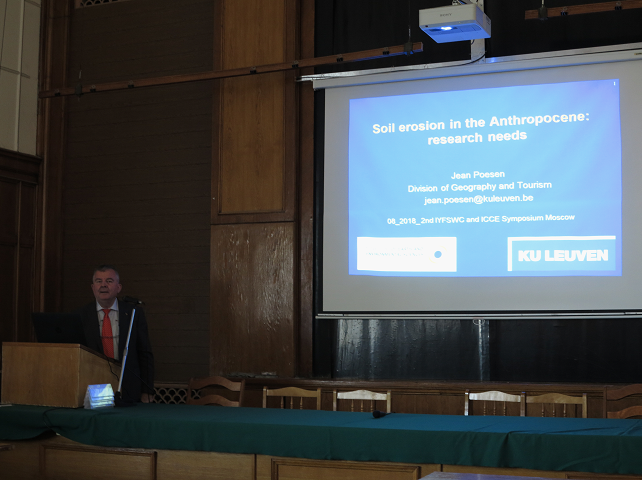
Prof.
Jean Poesen, one of the Invited Speakers, is giving speech
For
the young participants, to provide a full platform for them to communicate, to express,
and to discuss what researches they have been involved, up to 74 oral
presentations and 57 poster presentations have been arranged in 5 oral rooms
and 1 exhibition hall during this forum. All participants got the chance to
share their research with others.
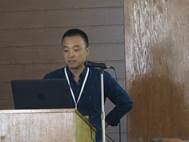
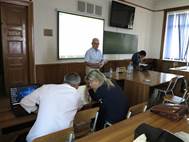
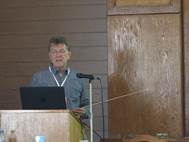
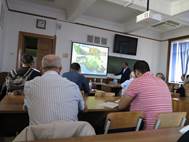
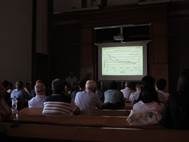
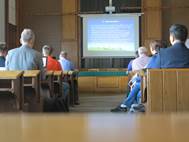
Some
Oral Presentations
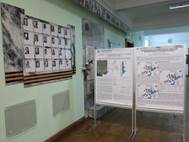
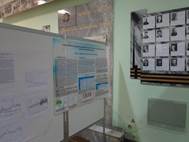
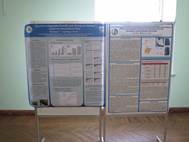
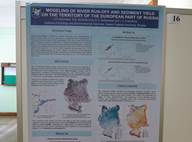
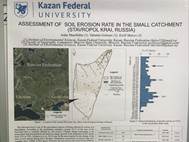
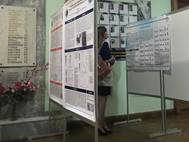
Some
Poster Demonstrations
To
make all participants clear about the achievement in soil erosion control and
water resources protection, the scientific tour was arranged on August 30. This
tour including two sites visiting.
The
first one is a different types of soil erosion (sheet, rill, ephemeral gully
etc.) observation in the cultivated lands in this part of the Central Russia.
Erosion processes are observed during spring snow-melting in the end of March –
beginning of April and after heavy rain-storms during warm part of year (May –
September). Results of long-term monitoring of soil erosion, quantitative
assessment of the soil erosion rates and consequences of the cultivated land
reduction have been discussed during the field excursion.
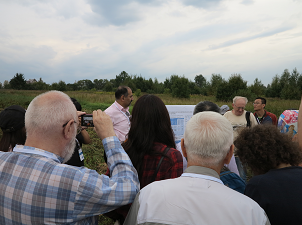
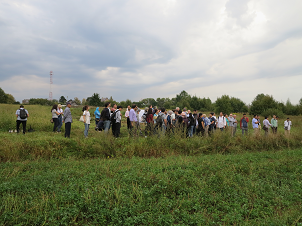
The
soil erosion observation visit
The second
one is the Moscow water supply system. A canal constructed almost 80 years ago
for Moskva-Volga has now became the biggest artificial waterway in Russia,
linking Moscow to the Volga River at Ivankovo, north of Moscow. Participants
have learned a lot about the water supply system and the protection for the
water sources locations.
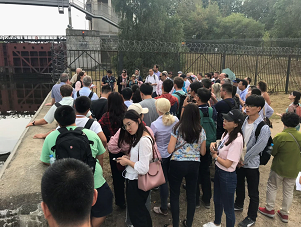
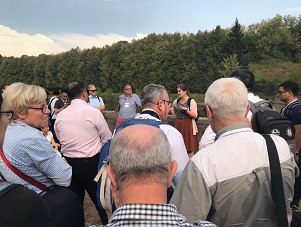
The water
supply system visit
As an extra
welfare, a training course“Water-related natural hazards:
measurement and modeling” has been provided during this forum. It included 7-session
lectures, seminars, as well as workshops. The topics are mainly about the
following aspects:
1.
How can we measure erosion at plot scale, field scale and
small watershed scale, what are the challenges for these different scales of
measurement and which types of equipment exist
2. Ecomag: catchment scale streamflow assessment for world’s large rivers
3.
Soils of the world
4. Digital modeling of erosion soil cover patterns
5.
Quantitative assessment of soil and gully erosion rates
6. Social economical factors of soil and water conservation in the different
landscape zones
7.
Bed load measurements techniques in river monitoring
Participants
for this course has got the official internationally recognized diploma of
Moscow State University (1 ECTS point), which was issued in the closing
ceremony of the forum.
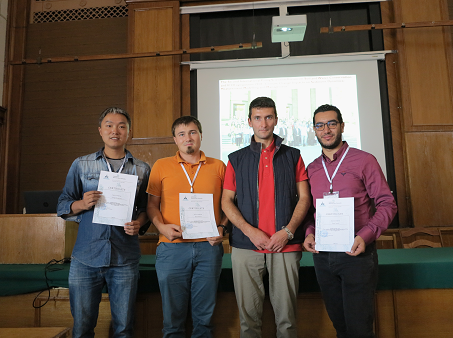
The
diploma issue for the training courses
As one
of the important content, the WASWAC
outstanding Youth Paper Award was released in the closing ceremony. Total
10 paper were evaluated from submitted manuscripts to receive this award. Each
first author for the ten papers has received 1000 USD honorarium and
certificate. As the sponsor of this award, Beijing DATUM Technology Development
CO.,LTD has dispatched staffs to attend this forum. The award issue ceremony
was tightly following the introduction proposed by DATUM.
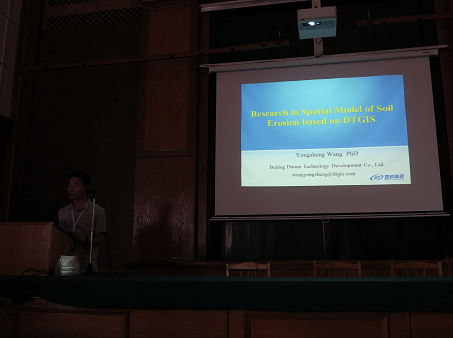
An introduction proposed by DATUM in the closing ceremony
The
sponsors for this forum include WASWAC and MSU. The Co-organizers include China
Society of Soil and Water Conservation (CSSWC), International Research and
Training Center on Erosion and Sedimentation (IRTCES), The International
Commission on Continental Erosion (ICCE), The International Association of
Hydrological Sciences (IAHS), V.V. Dokuchaev Soil Science Institute, and the
UNESCO Chair at the University of Natural Resources and Life Sciences. Thanks
for the everything under their strong support!

